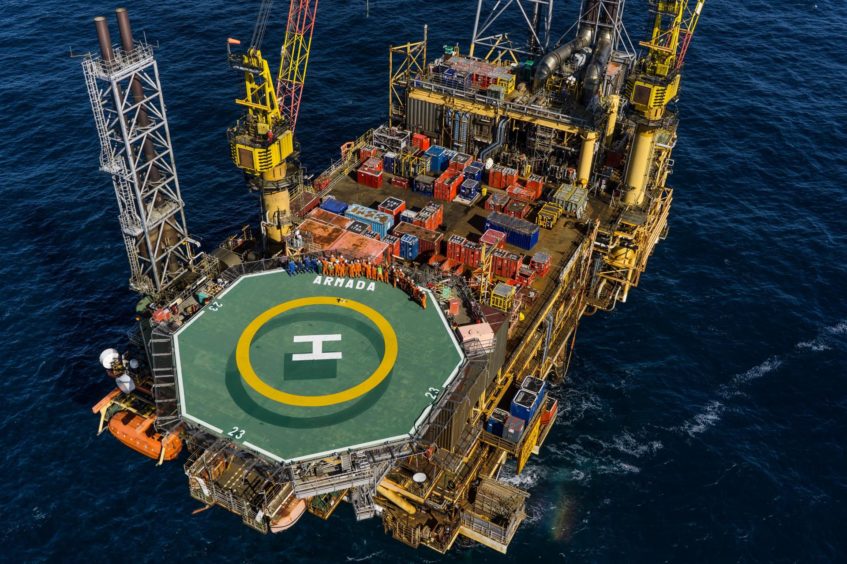
Harbour Energy and Eni are set to invest more than £8 billion in the UK over the next four years, as the sector continues to bat away calls for a windfall tax on energy profits.
Eni intends to invest more than €2.5 billion (£2.1bn) over the next four years, while Harbour has a reported £6bn earmarked for further North Sea upstream activity over the next three years, according to the Financial Times.
The commitments follow similar pledges made by the likes of BP, Shell and Ithaca in recent weeks.
It comes as the government finds itself under increasing pressure to impose additional tax measures on oil and gas firms, in a bid to ease a cost of living crisis driven in part by skyrocketing energy prices.
It has so far resisted the calls, though both Chancellor Rishi Sunak and business secretary Kwasi Kwarteng have said they expect to see energy firms spending and investing in the UK.
Last week trade body Offshore Energies UK (OEUK) said investments made by its members, many of which support net-zero projects, could be diverted if politicians keep threatening to impose windfall taxes.
It pointed to an OEUK survey which suggests an estimated £200-250bn has been set aside by energy companies to invest in offshore wind farms, hydrogen production plants and carbon capture facilities by 2030, as well as the costs of maintaining oil and gas supplies.
This compares with the equivalent of around £201bn between 2012 and 2021, the FT noted.
In a statement Eni told the FT: “In line with OEUK we believe that it would be best to ensure energy companies speed up investments in the energy transition rather than imposing a windfall tax which might have the effect of slowing down future investments.”
The Italian-headquartered supermajor said 80% of its €2.5bn investment would be spent on carbon capture and renewable energy projects, and 20% on oil and gas production.
Eni has already farmed in to a 20% share of the UK’s mammoth Dogger Bank offshore wind farm, with stakes managed by its renewable energy and retail division Plenitude.
It is also leading the HyNet cluster on the UK’s west coast, which will see industrial CO2 emissions captured and stored in depleted oil and gas reservoirs in Liverpool Bay, alongside new onshore hydrogen production capacity.
Meanwhile, in addition to Harbour’s sizable drilling portfolio, it is also involved in CCS projects across the UK, including at the V Net Zero project in the Humber region and the Acorn project in Scotland.
Other ongoing development projects include the Tolmount East extension, scheduled to begin drilling in the second half of this year, and new wells at the J-Area and Catcher field.
The company is expected to retain its place as the largest oil and gas producer in the North Sea this year.
Following bumper quarterly profits of nearly £5bn, BP also announced plans to invest £18bn in the UK energy system by 2030 including oil and gas and offshore wind.
Its chief executive, Bernard Looney, made similar statements on proposed windfall tax measures earlier this month, telling the supermajor’s annual general meeting that “unpredictable” taxes “would challenge investment in home-grown energy”.
Meanwhile, Shell announced it will invest up to £25 billion in the UK over the same period, while Ithaca mooted plans for at least $3bn of UK expenditure.
Recommended for you
